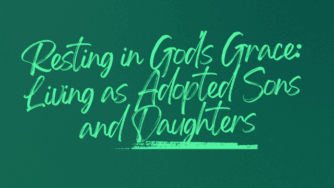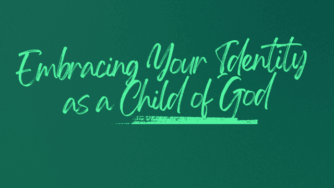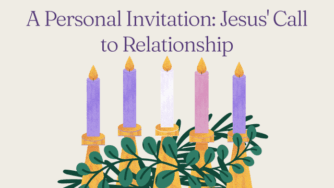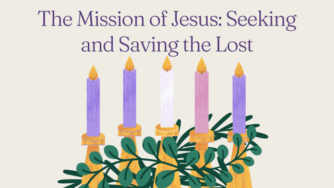The Power of Righteousness and Faithfulness
Faithfulness is hard to achieve but something at moments of honesty we all know we need. In a world filled with chaos and uncertainty, where discord often prevails, the call for righteousness and faithfulness becomes ever more crucial. This sentiment is beautifully encapsulated in a powerful message, emphasizing the significance of these virtues. The speaker’s focus on righteousness and faithfulness sets the tone for a profound reflection on the role of the church in fostering unity, peace, and the transformative power of Jesus’ love.
Jim underscores the idea that putting others first is not just a noble act but a reflection of righteousness and faithfulness. By leading through example, one can bear fruit that ultimately results in peace. The metaphor of bearing fruit implies a process of growth and nurturing, highlighting the need for intentional efforts to cultivate virtues that bring about peace in our communities and, by extension, the world.
The core message is further illuminated by a reference to a prophetic vision, where the root of Jesse stands as a banner for the peoples, and the nations rally to him. This vision is a powerful metaphor for the church’s role as a unifying force, standing tall and glorious, drawing people from all walks of life. The banner symbolizes Jesus, emphasizing the idea that the church should be a place for all, centered solely on preaching Jesus and His message of love and peace.
Amidst this call for unity, the speaker acknowledges the imperfections within the church. The imagery of wolves ready to pounce and exploit the weaker members suggests the existence of internal challenges that can hinder the church’s ability to be a true banner of Jesus. The speaker highlights the presence of “snakes in the grass,” cautioning against those who might strike with their pain, poison, and opinions, threatening the unity and peace that the church should embody.
The speaker recognizes the imperfection of the church as a reflection of the imperfect people within it. However, this acknowledgment serves as a call to action rather than a resignation. The imperfections become a reason to lean on a perfect Savior who can bring grace, forgiveness, hope, and peace. The emphasis on Jesus as the solution to imperfection reinforces the idea that true transformation comes from a higher source.
The message concludes with a hopeful vision of the future, where the wolf will lie down with the lion, fulfilling a prophecy that speaks to a harmonious coexistence. However, the urgency lies in the present – a call for the church to be a true banner of Jesus, standing tall, strong, true, and right. This call resonates with the belief that Jesus, with His love and peace, has the power to change everything.
In essence, the speaker’s message is a call to action for the church to embody righteousness and faithfulness, to be a beacon of unity, and to reflect the transformative power of Jesus’ love. It is a reminder that despite the imperfections, the church has the potential to be a powerful force for positive change in the world by standing as a true banner of Jesus and His message of love, peace, and unity.
The call to unity is a powerful and recurring theme in the Bible, closely tied to faithfulness. As believers, our faithfulness to God and to one another is essential in maintaining the unity that Christ desires for His Church. Here’s how faithfulness underpins the call to unity:
The Foundation of Unity in Christ
Unity among believers is rooted in our shared faith in Jesus Christ. Ephesians 4:4-6 emphasizes this foundational truth: “There is one body and one Spirit, just as you were called to one hope when you were called; one Lord, one faith, one baptism; one God and Father of all, who is over all and through all and in all.” Our unity is based on the commonality of our faith in Christ and our relationship with the same Heavenly Father.
Faithfulness to God
Our faithfulness to God is the first step towards unity. This means loving Him with all our heart, soul, and mind (Matthew 22:37). When we are devoted to God, we align our lives with His will and His desires, which naturally leads us to live in harmony with others who are doing the same. Faithfulness to God includes adhering to His teachings and commands, which often emphasize love, forgiveness, and reconciliation—key elements for unity.
The Call to Love One Another
Jesus commanded His followers to love one another as He loved them (John 13:34-35). This command is a call to faithfulness in our relationships with each other. Love is the bond that holds us together and enables us to bear with one another’s faults and forgive as we have been forgiven (Colossians 3:13-14). Faithfulness in loving one another reflects our commitment to the unity of the body of Christ.
The Importance of Humility and Service
Unity is fostered through humility and a willingness to serve one another. Philippians 2:3-4 urges us, “Do nothing out of selfish ambition or vain conceit. Rather, in humility value others above yourselves, not looking to your own interests but each of you to the interests of the others.” Faithfulness in embodying humility and servanthood, as exemplified by Jesus, promotes unity by placing the needs of others before our own.
Faithfulness in Keeping the Peace
In Ephesians 4:1-3, Paul urges believers to “live a life worthy of the calling you have received. Be completely humble and gentle; be patient, bearing with one another in love. Make every effort to keep the unity of the Spirit through the bond of peace.” Faithfulness in this context means actively working to preserve unity and peace within the community of believers. It involves patience, gentleness, and a commitment to resolving conflicts in a godly manner.
Unity in Diversity
The body of Christ is diverse, with many members having different gifts, backgrounds, and roles. Yet, this diversity is meant to contribute to the overall unity and health of the Church. 1 Corinthians 12:12-14 explains, “Just as a body, though one, has many parts, but all its many parts form one body, so it is with Christ.” Faithfulness means appreciating and valuing this diversity, recognizing that every member plays a vital role in the body’s function and unity.
The Witness of Unity
Our unity as believers serves as a powerful witness to the world. In John 17:20-23, Jesus prays for all believers, asking that they may be one as He and the Father are one, so that the world may believe that God sent Him. Faithfulness to this call to unity is not only for our benefit but also for the sake of our testimony to the world. When we live in unity, we reflect the love and truth of the Gospel.
Conclusion
Faithfulness and unity are deeply intertwined in the Christian life. By being faithful to God, loving one another, practicing humility, striving for peace, and valuing diversity, we can foster and maintain the unity that Christ desires for His Church. This unity is not only a testament to our commitment to one another but also a powerful witness to the world of God’s love and the transformative power of the Gospel. As we remain faithful in these areas, we fulfill Jesus’ prayer for His followers to be one, just as He and the Father are one.






